Family adjusts to daily challenges for baby boy
For 10 weeks, Carlla Detwiler drove to Cincinnati weekly to infuse fluid into her uterus to make up for her baby boy’s only — but non-functioning — kidney. The procedure would also allow his lungs to develop, in the hope he would live.
Day 1 story:: Parents' faith, science help Massillon boy beat odds
Nov. 2020 update: Baby David's giant battle: Family thankful for son who faces more hurdles
Nov. 2021 update:: Baby David’s giant battle: Boy born without working kidney is one step closer to transplant
Dec. 6, 2021 update: 'A Christmas miracle': Baby David gets a kidney transplant
Dec. 9, 2021 update: Baby David's Giant Battle: Massillon toddler is doing 'phenomenal' after kidney transplant
Dec. 2022 update:Baby David's Giant Battle: 'They gave David the gift of life'
But it was his heart that brought David Matthew Detwiler into the world earlier than planned.
It was another unexpected step in the challenging road ahead for the Massillon baby.
At Carlla's 36-week checkup on April 9, the doctor could not find baby David’s heartbeat.
Carlla was rushed to Cleveland Clinic Akron General, where Akron Children’s Hospital specialists were ready to deliver the baby.
“We had faith he was going to survive birth, but we didn’t know if he was going to stay with us,” recalls Carlla.
Carlla wanted to be able to hold her baby if he was going to die, so she asked for minimal pain medication during her emergency Caesarean section.
“That was one of the bigger mistakes of my life,” she said.
Carlla did not even know that David was born at 5:25 p.m.
She felt a final tug in her abdomen, but did not hear the baby cry.
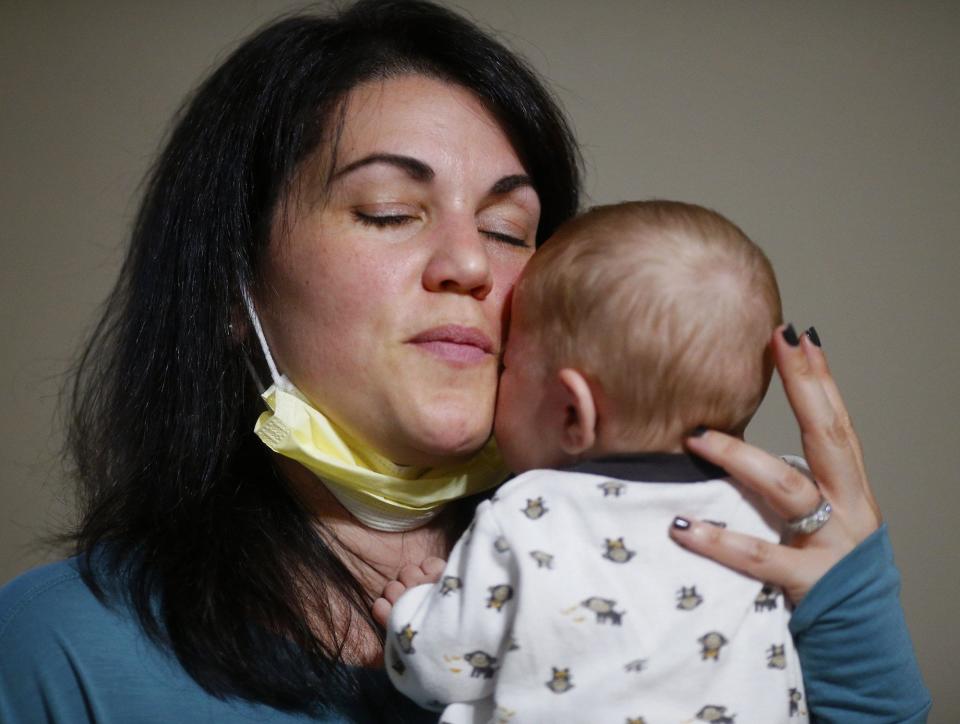
Baby David had already been whisked to the resuscitation room, where he was being prepared for a ventilator.
A doctor came back to tell Carlla and her husband, Brad: “He’s really sick — a lot sicker than we thought. I want you to say what you want to him.”
Carlla’s uncle, a priest in Toronto, Ohio, had rushed to the hospital to baptize David when he was 6 minutes old while his parents held his hand through an incubator. A family friend and photographer took photos of David’s first moments.
“I just wanted to capture any moment of his life that we could, whether that would be good or bad,” Carlla said.
David was taken to Akron Children’s Hospital. Carlla discharged herself the second day to be with her son.
While his first nights were precarious, David was mostly breathing on his own within three days, with the assistance of some machines.
His next hurdle was dialysis to cleanse his body of toxins and do the work for his one non-functioning kidney. Within days of his birth, he had a catheter surgically placed in his chest and his first daily dialysis session.
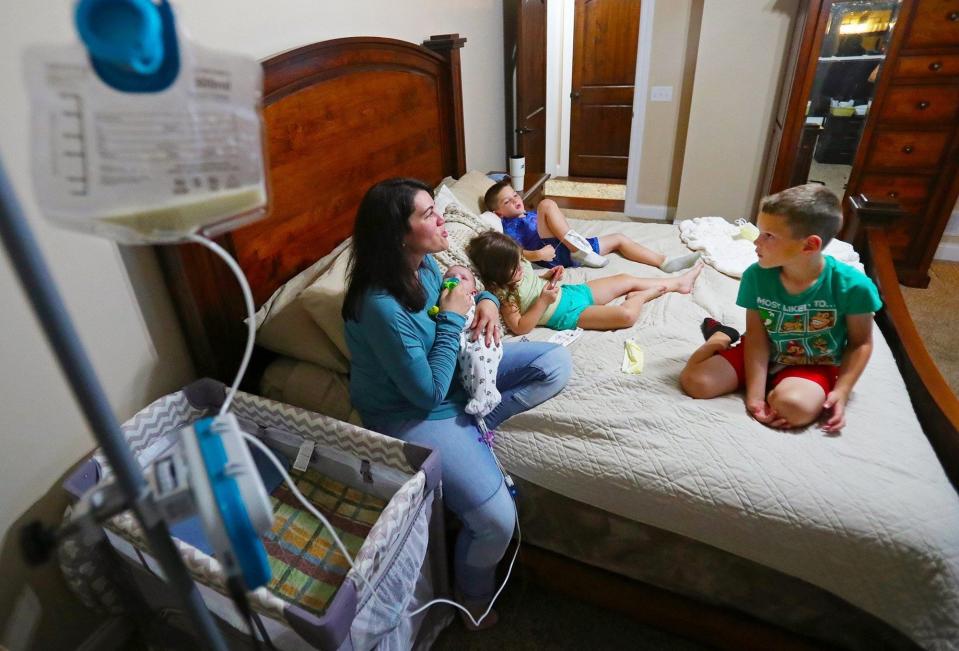
Doctors had told the Detwilers that babies like David typically stayed in the hospital for four to six months and half did not survive to go home.
David was in the hospital for 69 days.
Dr. Shefali Mahesh, director of Children’s department of nephrology, who has been coordinating David’s care since Carlla’s 32nd week of pregnancy, said it is rare to care for babies like David. “It’s a rough course,” Mahesh said. “The first couple of years are very, very involved and require a ton of dedication; it’s almost like a religion. You have to have a lot of belief, a lot of dedication and a good team, otherwise this is very difficult.”
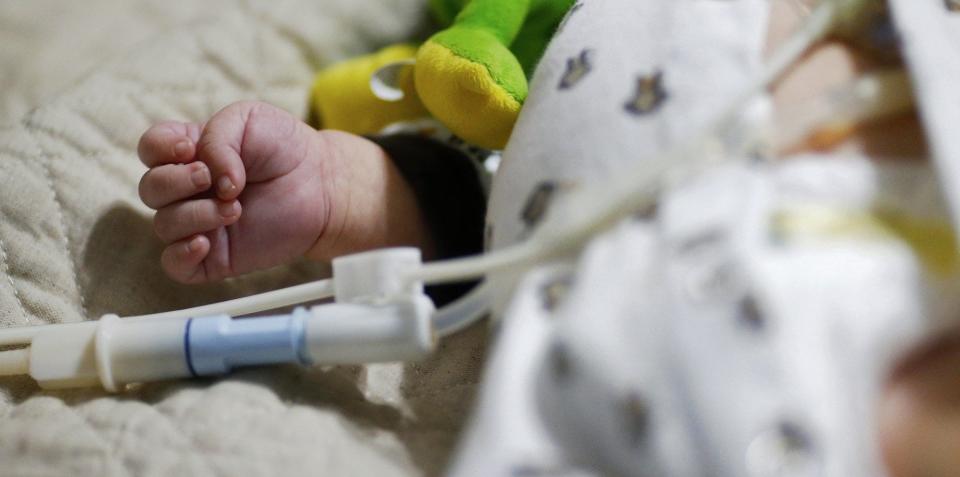
David is fed every three hours through a feeding tube in his stomach. If he leaves the house, for doctors' appointments or to go to church, he can be fed using a portable syringe with his liquid diet. The need for the feeding tube will hopefully be eliminated once he receives a transplanted kidney.
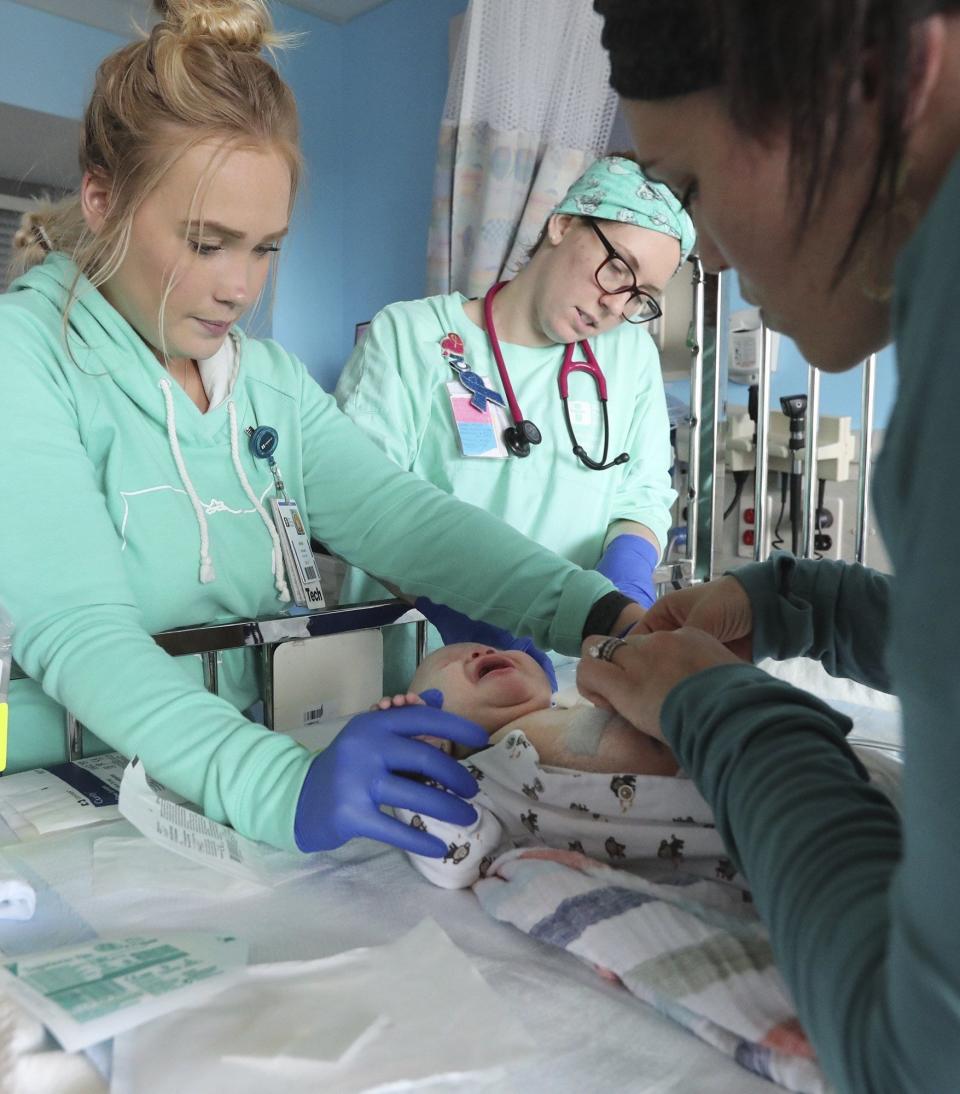
Nightly dialysis
Every night around 7, David is hooked up to a dialysis machine in his parents’ Massillon bedroom. The machine fills the peritoneal cavity in his chest with fluid and, over the next 12 hours, flushes his system through the peritoneal membrane of toxins. Peritoneal dialysis is different and gentler on the body than regular dialysis, in which a machine removes and washes the blood before recirculating it into the body, Mahesh said.
The nightly dialysis is a family affair. David’s siblings — Domenik, 6, Daniel, 5, and Stella, 3 — don surgical masks and hang out on their parents’ bed for family time before they head to bed.
Carlla and Brad decided early on that they would be the only ones to do David’s dialysis treatments.
“That’s his lifeline,” said Carlla. “If that were to get infected due to something someone did, we never wanted to feel like we would blame someone for that.
“It seems like second nature now. We could probably do it with our eyes closed, but it was super scary at first.”
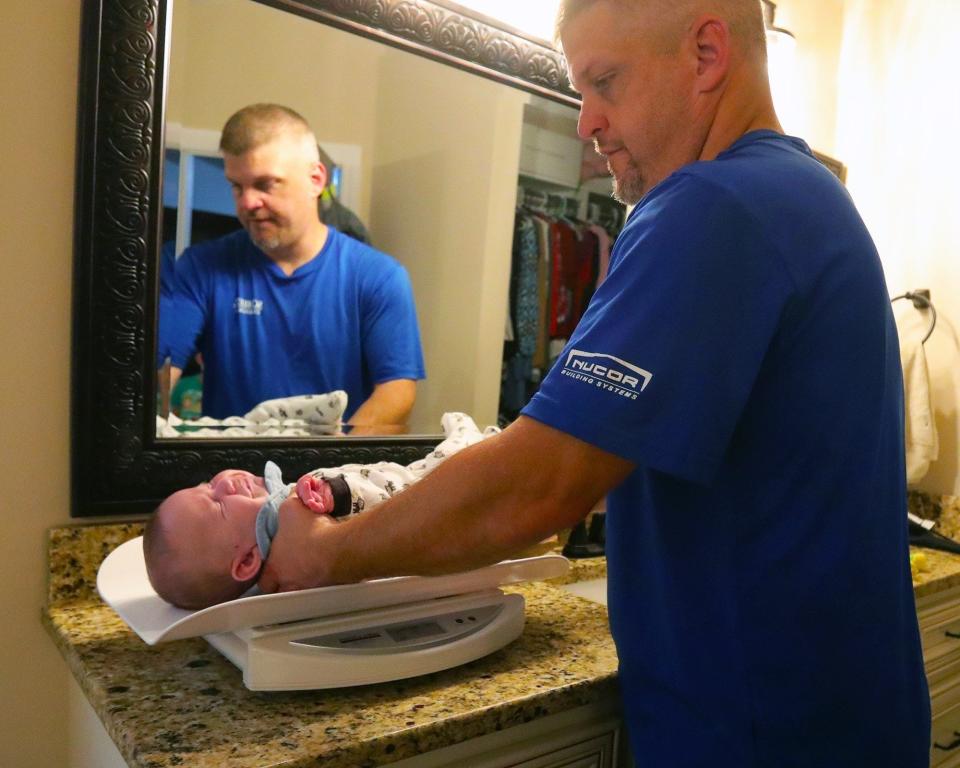
The preparation includes weighing David beforehand, getting the machine ready and hooking him up. David is then tethered to the machine until 7 a.m.
“Then it gives me an hour or so to get him off, get him changed, put him in the swing, get the kids ready and get to work,” his mother said.
In the last six weeks, David has been hospitalized four times, including for emergency surgery to fix his dialysis catheter and detangle it from his bowel and another operation to fix a hernia.
The family is learning quickly that hospital stays and unexpected things are going to be a part of life, Carlla said.
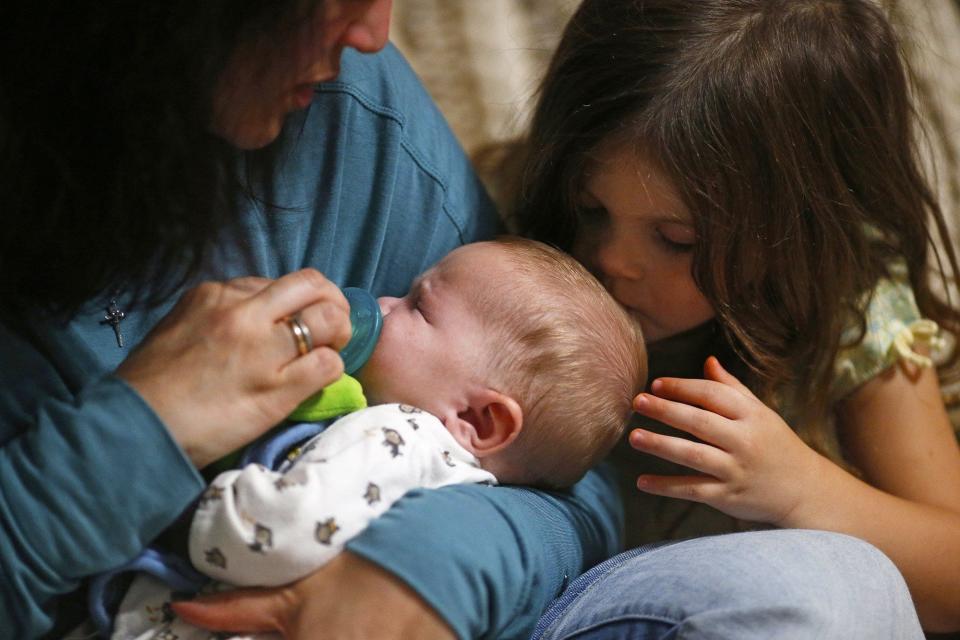
But with the miracles and the long road ahead, there has come a bigger disappointment for the family: About a month ago, it was confirmed that David is blind.
Carlla said she suspected he might not be able to see since his eyes were cloudy and he was not making eye contact or tracking people.
Doctors are unsure if the blindness is connected to David’s other medical conditions.
“Sometimes if you think of this diagnosis, and it’s a little harder on your heart, because the kidney thing has an end with a transplant day and hopefully some normalcy after that,” said Carlla. “Being blind is a whole thing. We don’t know anything about it. We don’t know now, how do we raise him? Obviously, we started to put our faith in God and he’s going to guide us, and David is going to show us what he sees.”
His parents know there are people who look at David’s situation — he also has some mild brain damage and may have developmental delays — and think, “Was this the right decision for him?”
“We wouldn’t change a thing,” Carlla said. “He’s a beautiful baby boy, and we are determined to give him a wonderful life.
“It’s not going to be normal, but it’ll be his normal.
Waiting for kidney
The goal for pediatric patients is for them to weigh 22 pounds before they can be considered for a transplant. That is often around age 2, but the size of the baby is more important because the donor kidney is coming from an adult, Mahesh said.
While a deceased pediatric donor’s kidney could be used, a kidney from a living donor does better, she said. Living donors must be 18, so David’s young siblings are not eligible. Neither is Carlla since she is a Type 1 diabetic, and David’s grandparents are beyond the age 55 limit to be tested.
His father plans to be tested. If there is no match within the family, they will put David on a national donor registry.
In the meantime, his parents are in awe of the outpouring of love, support and prayers the family has received.
Said Brad: “He’s impacted more lives than any of us ever will or have."
Nov. 2020 update:: Baby David's giant battle: Family thankful for son who faces more hurdles
Beacon Journal consumer columnist and medical reporter Betty Lin-Fisher can be reached at 330-996-3724 or blinfisher@thebeaconjournal.com. Follow her @blinfisherABJ on Twitter or www.facebook.com/BettyLinFisherABJ and see all her stories at www.tinyurl.com/bettylinfisher.
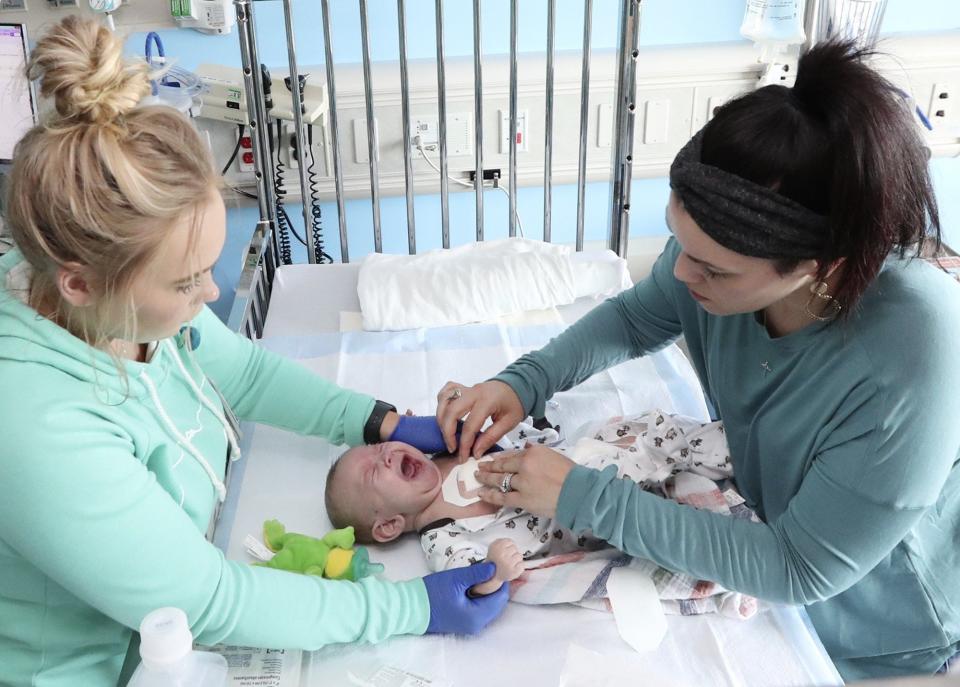
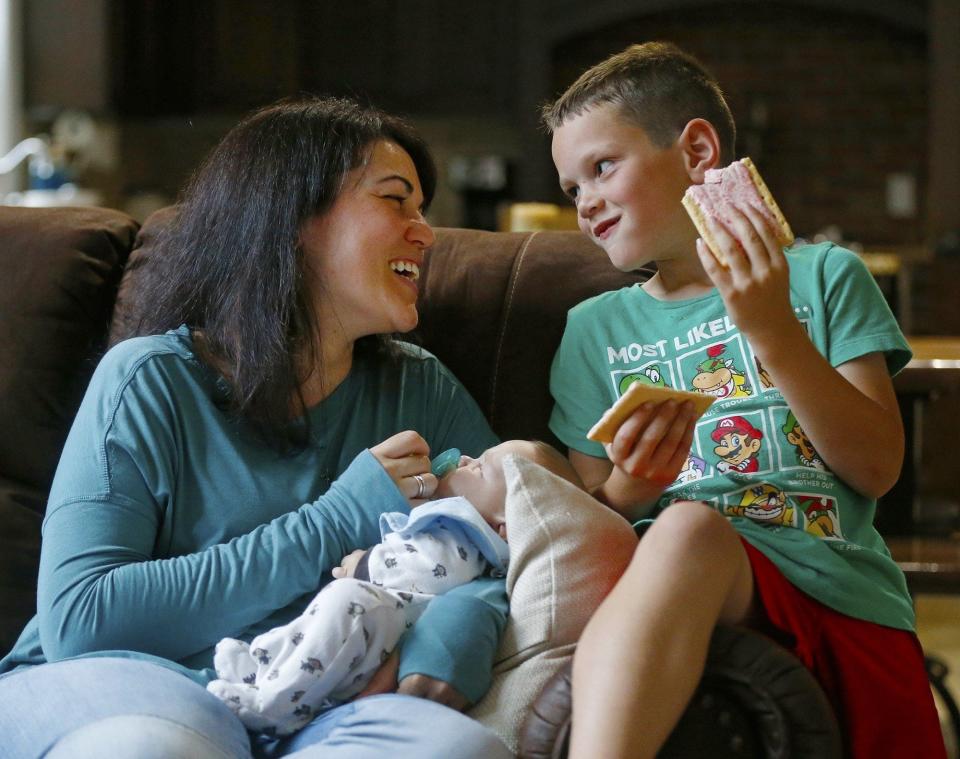
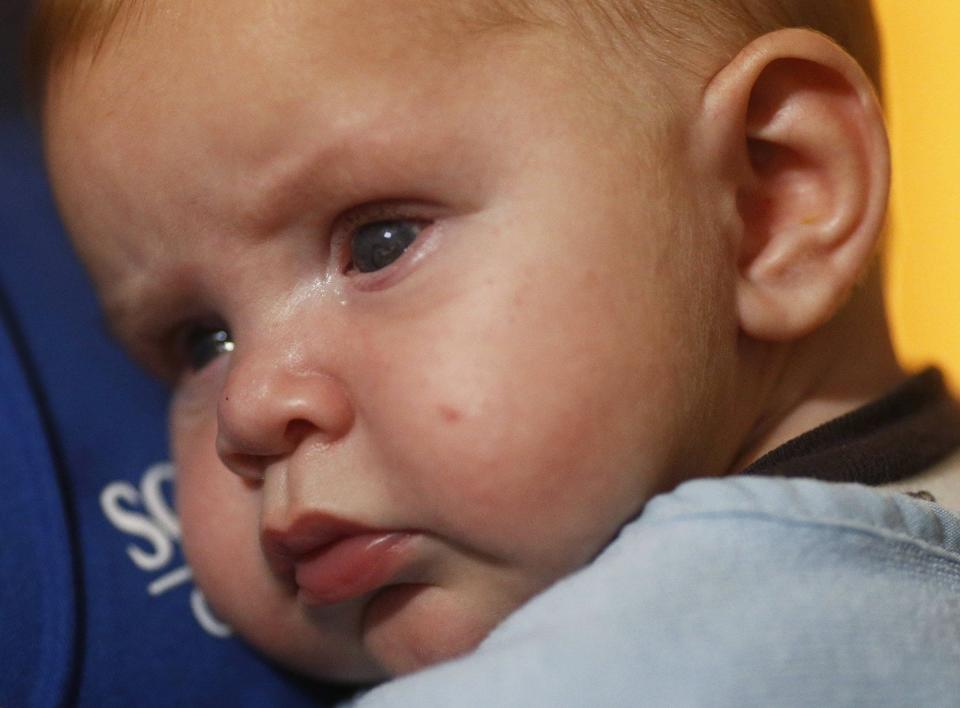
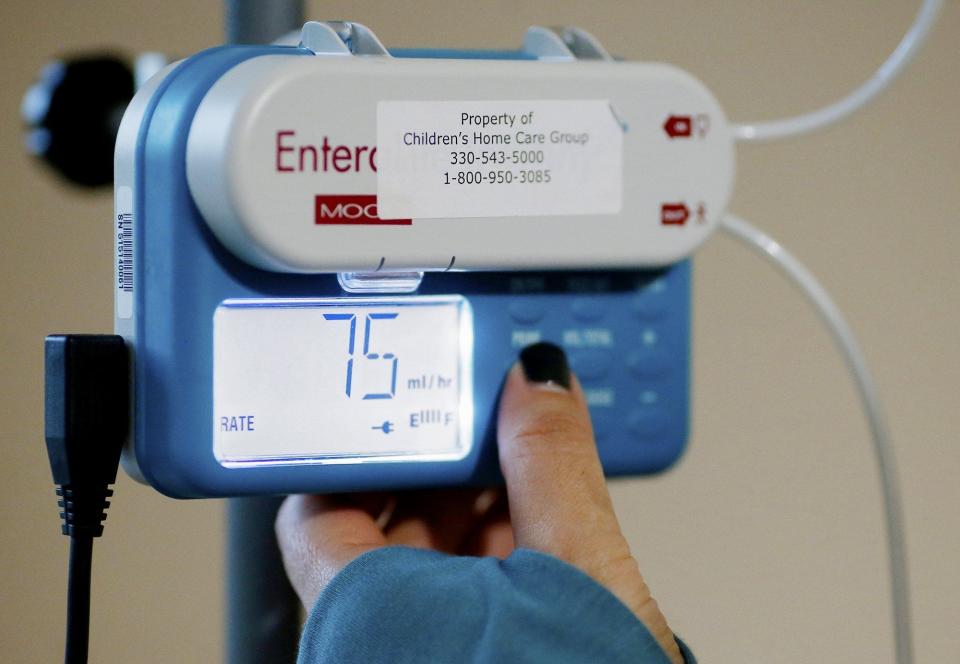

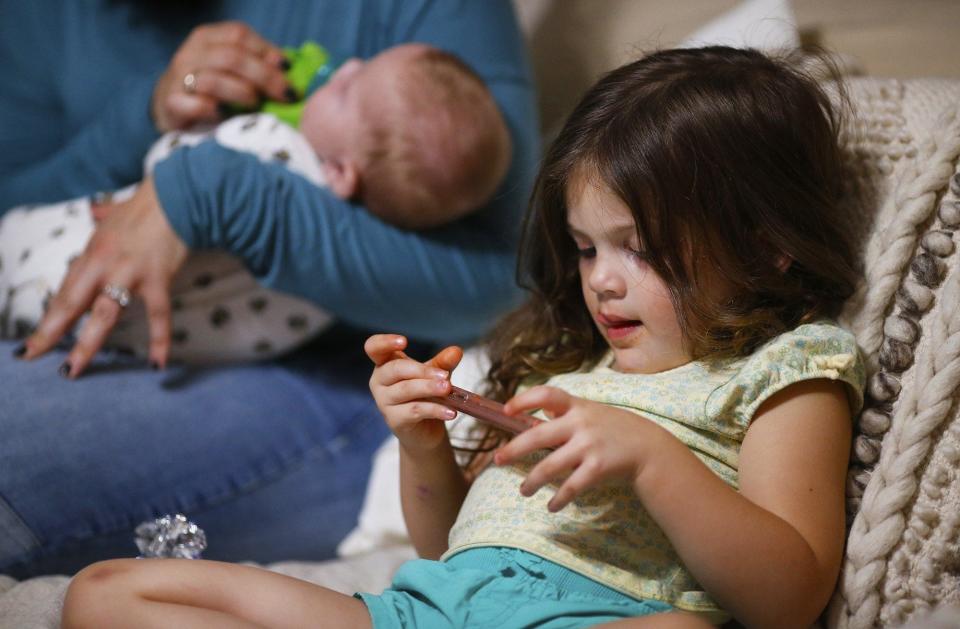
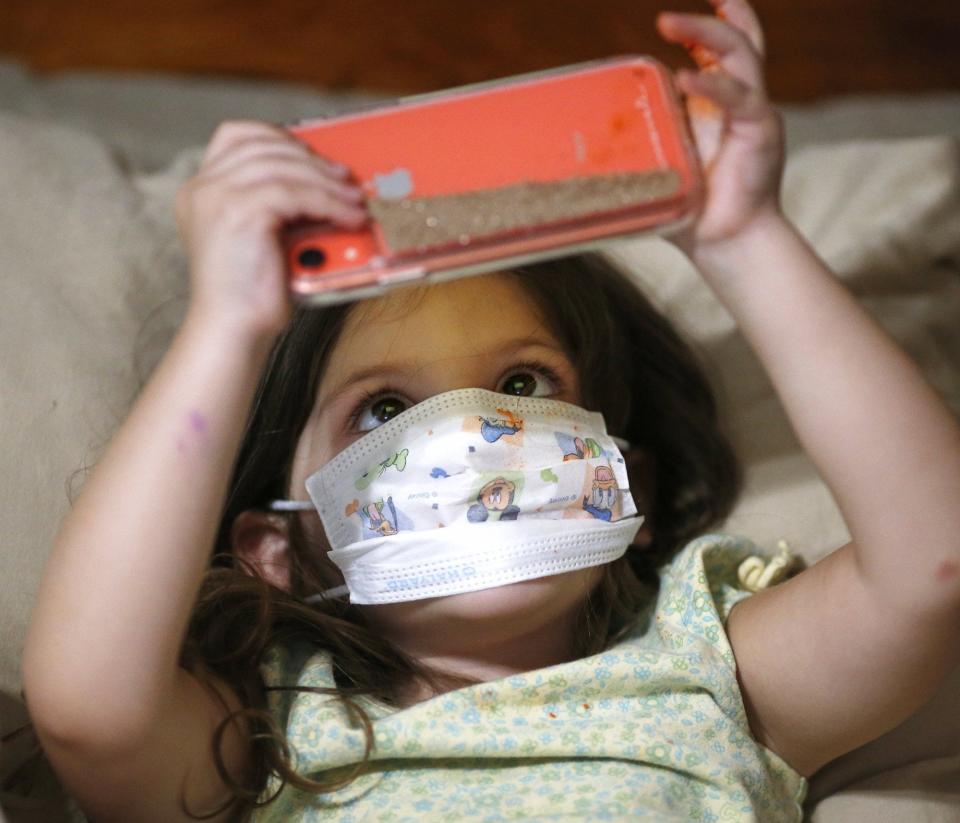
This article originally appeared on Akron Beacon Journal: Family adjusts to daily challenges for baby boy

